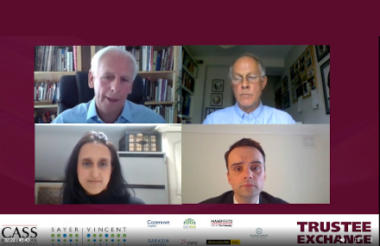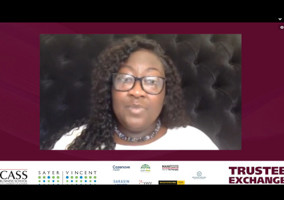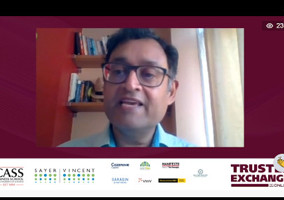Being a trustee is increasingly burdensome, which can discourage younger people and those with caring responsibilities, Save the Children’s general counsel has warned.
Habibunnisha Patel, general counsel and company secretary at Save the Children UK, was speaking at a panel discussion about public benefit and public expectations at Civil Society Media’s Trustee Exchange event last week. She said charities needed more “latitude” so that they can take risks and make mistakes.
“Give charities and their boards confidence to be able to take a measured level of risk, to do really difficult things, and to be transparent when mistakes happen,” she said.
She also highlighted the well-documented lack of diversity among trustee boards, with trustees being overwhelmingly drawn from white, affluent backgrounds. She said: “Unless we provide that latitude, increasing diversity in charities and on boards will remain tough.”
Patel described being a trustee as a “huge responsibility”, adding: “I do think that the feeling that trustees take on increasing personal risk will have an adverse impact when increasing diversity on boards.”
Patel said it would be hard to encourage more people to join boards “if the demand that it comes with is too much”.
She said the only way that she had been able to fit in trustee duties was when she was a consultant, “and I cut back on my paid work”.
Commission has ‘not got the balance right’
Another panellist, Andrew Purkis, a former Commission board member, argued that the regulator’s public messaging could discourage people from trusteeship.
He said the emphasis on public expectations was worrying. “There is too much weight put on public opinion and expectation and not enough on public benefit.”
Purkis criticised the Commission for not focusing on its duty to promote wider understanding of public benefit, which is something that distinguishes charities from other organisations.
He added that “messages to trustees are vague”.
“What trustees need above all from our regulator is precision and clarity, which is exactly what we are not getting if the Commission travels further away from its grounding in charity law and public benefit and ventures into the changeable mists of supposed public opinion,” he said.
Review of regulator's guidance
John Maton, assistant director of legal services at the Charity Commission, said the regulator plans to redesign some of its guidance to make it less complex and easier to use.
“We recognise that it is due for a review and refit,” he said.
However, he said the tone of the guidance is not intended to be off-putting. “Some people maybe read across from the tone of critical inquiry reports that we publish or documents that we put out about risks to the sector,” he said.
He added that the law and the Commission’s expectations have not changed, but said: “We’re more vocal in the areas that we think are important and we’ve made sure to emphasis those that we have communicated.
“I would certainly hope that does not put people off becoming trustees, and I would hope it helps people to appropriately manage the risks involved, but equally these are all things for us to think about in our redesign work.”
Earlier in the discussion, Maton highlighted how the regulator had made good progress on its “backlog” of case work.
He also said that the introduction of a new online form for serious incidents means it now gets all the information it needs first time around in 90% of cases.
Related articles












